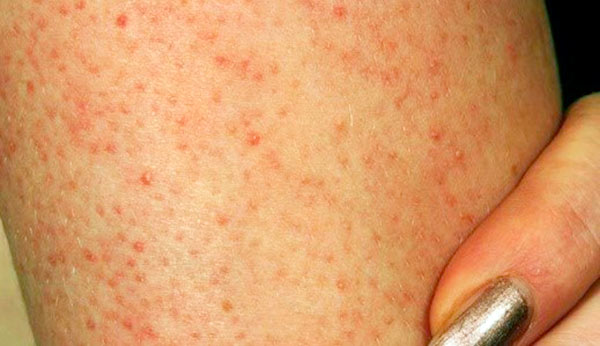Keratosis pilaris is a skin condition that is characterized by the presence of small, dry, rough bumps or bumps on the skin that resemble chicken skin. They usually appear on the upper arms, thighs, and buttocks, but they can appear on other areas of the body.
Although keratosis pilaris is a harmless condition, many people find it aesthetically unappealing and look for ways to treat it. Here are some treatment options that can help improve your skin’s appearance:
Hydration:
Keeping your skin well hydrated can help reduce the appearance of bumps. Use a gentle, unscented moisturizer after showering and whenever your skin feels dry.
Exfoliation:
Gently exfoliating your skin with an exfoliating sponge, brush, or lotion can help remove dead skin cells and reduce the appearance of bumps.
Salicylic acid:
Products containing salicylic acid can help smooth the skin and reduce the appearance of bumps.
Vitamin A:
Products containing retinoids or vitamin A can help improve the skin’s texture and appearance.
Professional treatments:
In more severe cases, a dermatologist may recommend treatments such as chemical peels, microdermabrasion, or laser therapy to help reduce the appearance of bumps.

It is important to remember that keratosis pilaris has no cure, but with proper treatment, it is possible to reduce the appearance of bumps and improve skin texture. Consult a dermatologist for an accurate diagnosis and personalized treatment recommendations.
Can any food make keratosis pilaris worse?
There is no scientific evidence that any specific food can make keratosis pilaris worse. However, a lack of certain nutrients can contribute to dry skin and worsen the condition. Therefore, it is important to maintain a healthy, balanced diet with plenty of water and foods rich in nutrients such as vitamins A, C, D and E, as well as omega-3 fatty acids, which can help keep skin healthy and hydrated. .
Also, some people report that foods like milk, gluten, or processed foods can make keratosis pilaris worse, but this information is based on anecdotal reports rather than scientific evidence. If you feel that any specific foods may be making your keratosis pilaris condition worse, it is recommended that you speak to a doctor or nutritionist to determine if there is a connection and to make adjustments to your diet if necessary.






